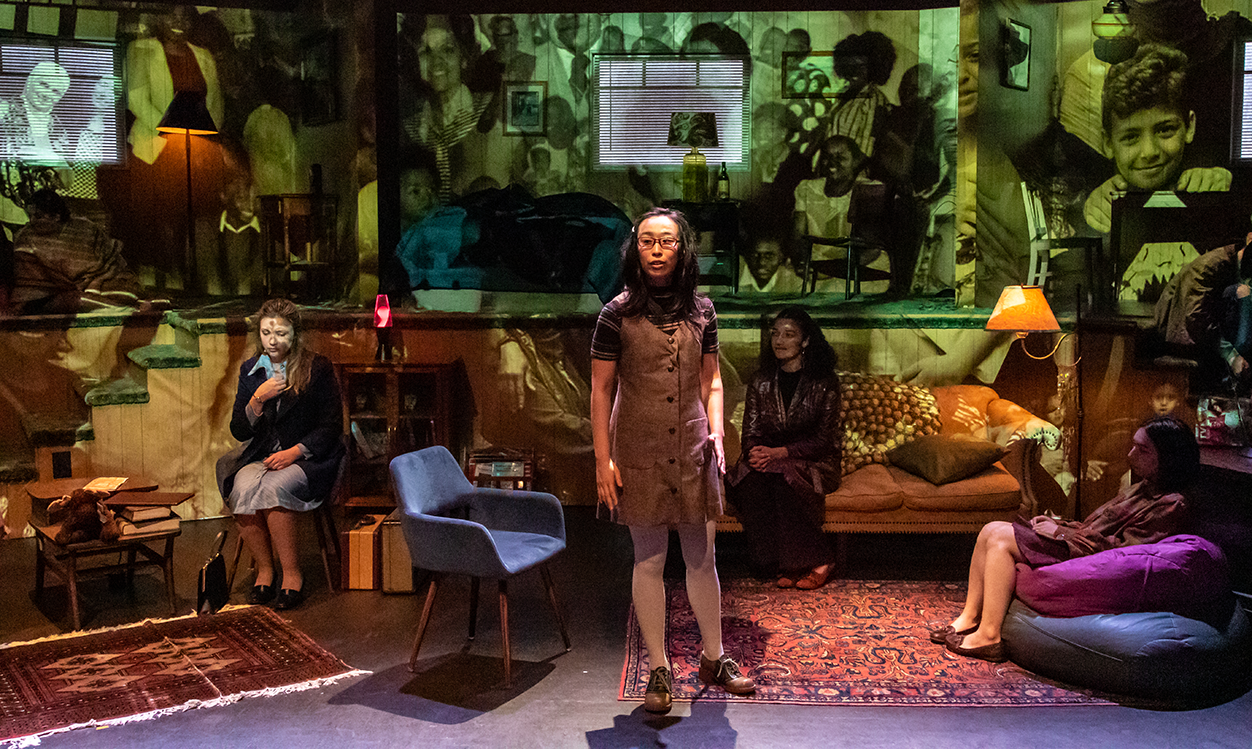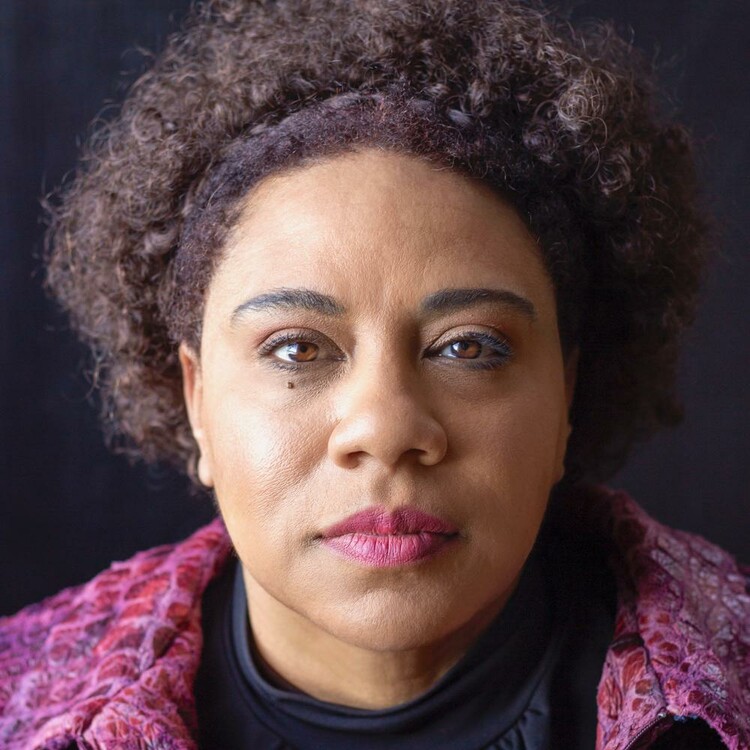Last September I was invited to the Stratford Festival in Ontario, Canada to facilitate a weeklong workshop entitled Post-Colonial Latinx Perspectives, held within the context of a series of workshops aimed at decolonizing our theatres. Stratford produces mainly classical theatre and musicals, employing culturally diverse performers. Members of the company, which included one Latinx actor, took part, as well as several Latinx Toronto actors. We read Latinx works, put scenes up on their feet, and, of equal—and perhaps greater—importance, spent a significant amount of time having difficult conversations. It was my aim to challenge essentialist identity politics that reduce our cultural identities to static endpoints that can only be performed by those who have lived experience of that particular cultural identity. Put another way, I wanted to provoke discourse that would tackle this moment of rigid cultural materialism. I wanted to defy the present climate because I do not believe that our final objective is to only have Latinx actors play Latinx parts, but rather that it is a tactic towards the ultimate goal (decades away? centuries away?), which is a theatre in which everyone will play everything.
Now, I’m aware that this “everyone can play everything” stance has led to whitewashing and “color-blind” casting because it has been addressed through the lens of inclusion in reaction to the normative center, as opposed to a politics of intersectionality. Taking on the “anybody can play anything” slogan through the latter politic would mean, in my view, that the casts of my plays (I am a playwright as well as an actor) would aim to reflect the racial and cultural diversity of whatever city they’re playing in. So, for example, if any one of my plays were to be produced in my hometown of Vancouver, about forty per cent of the actors would be Asian. We are now, I believe, at a place in our discourse in which we can start to really look at that ultimate goal and not confuse our tactic (only Latinx people should play Latinx roles) with the final objective, which is to abolish segregation and ghettoization in the theatre. But the question is: How do we get there?
I do not believe that our final objective is to only have Latinx actors play Latinx parts, but rather that it is a tactic towards the ultimate goal (decades away? centuries away?), which is a theatre in which everyone will play everything.
During our workshop, I often found myself making the following comment: “This is not a rhetorical question” in regards to real questions, such as, “Should a Latinx role only be played by a Latinx actor?” “Of course!” was the answer, with one Latinx actor stating they would consider it an act of violence if a non-Latinx actor played a Latinx role. I didn’t let that response deter me; it was in fact the perfect jumping-off point for my next question: “What if a theatre company in Saskatoon really wants to produce your play that features a Latinx cast of characters, and there are no Latinx actors in Saskatoon and the company has no funding to fly in Latinx actors? Do you tell the company to not produce your play? Do you deprive Saskatoon audiences of experiencing a Latinx story?”
This question could be asked about any number of independent theatre companies operating outside the big urban Canadian centers. Do we simply not share our work because most medium-sized Canadian cities don’t have the Latinx talent to fill the roles and no funding to bring actors in? This is not a rhetorical question. Over the years it has been brought to my attention that several companies across Canada have wanted to produce my plays but have resigned themselves to not doing so because there are no Latinx actors in their community. They figured I would not be open to casting non-Latinx actors and didn’t bother asking me for fear of the question itself being deemed offensive. I don’t blame them for not asking. Especially if the response from some would be to consider casting anyone other than a Latinx person an act of violence. In the Saskatoon example, I would simply ask the company to hire as many Indigenous and actors of color as possible—and in that way honor the Combahee River Collective’s definition of identity politics—and a Latinx cultural consultant.
How do we create this tool kit, meant to help non-Latinx actors inhabit Latinx characters to the best of their ability, without falling into racist stereotypes that are so often used against us?
During our Stratford discourse, we had two sets of notes going. The first was called our manifesto. Using the Saskatoon example, we decided that until we reach the goal of everyone truly playing everything, a manifesto would have to be shared with a company looking to produce a Latinx play. It would ask the hypothetical company to not erase us by making public statements that we do not exist—as happened a few years ago when a Vancouver company told a national newspaper they had spent two years scouring the country for Latinx talent, which they simply could not find (and yes, there is a Latinx talent pool in Vancouver)—but rather state that we do exist but that funding limitations made it prohibitive to bring us to their city. It would ask the company to commit to due diligence before concluding that there is indeed no Latinx talent in their pool (if you’re in Canada, a good place to start is by contacting the Canadian Latinx Theatre Artist Coalition, which has an ever-expanding database of Canadian Latinx theatre talent) and to endeavor to cast the Latinx roles with fellow racialized actors, and it would ask that all efforts be made to have a Latinx cultural consultant. We didn’t get much further than these manifesto points during our week together, but we thought it was a good start.
The second set of notes was called our tool kit, which consisted of cultural information that could be brought into a rehearsal hall where Latinx work was being made without Latinx artists present. This tool kit sparked lively and at times tense discussion as we delved into potentially offensive subject matter. What does one add to this tool kit? That Latinx people are more prone to hugging and physical proximity than the dominant culture in English Canada, which is protestant liberalism? That we tend to be louder and more gesturally expressive? What about the concept of chisme, that word that encompasses the grapevine, buzz, gossip, the lowdown, being “in the know,” and that captures our storytelling culture? How do we create this tool kit, meant to help non-Latinx actors inhabit Latinx characters to the best of their ability, without falling into racist stereotypes that are so often used against us? And yet we were all interested in a tool kit to go with the manifesto.






Comments
The article is just the start of the conversation—we want to know what you think about this subject, too! HowlRound is a space for knowledge-sharing, and we welcome spirited, thoughtful, and on-topic dialogue. Find our full comments policy here
Really helpful thoughts going forward. I appreciate the way you've deconstructed identity politics here--I've had many of these conversations with friends, but never known how to proceed.
This is an excellent article. I have often felt similarly, but not put it as eloquently as you. Thank you.